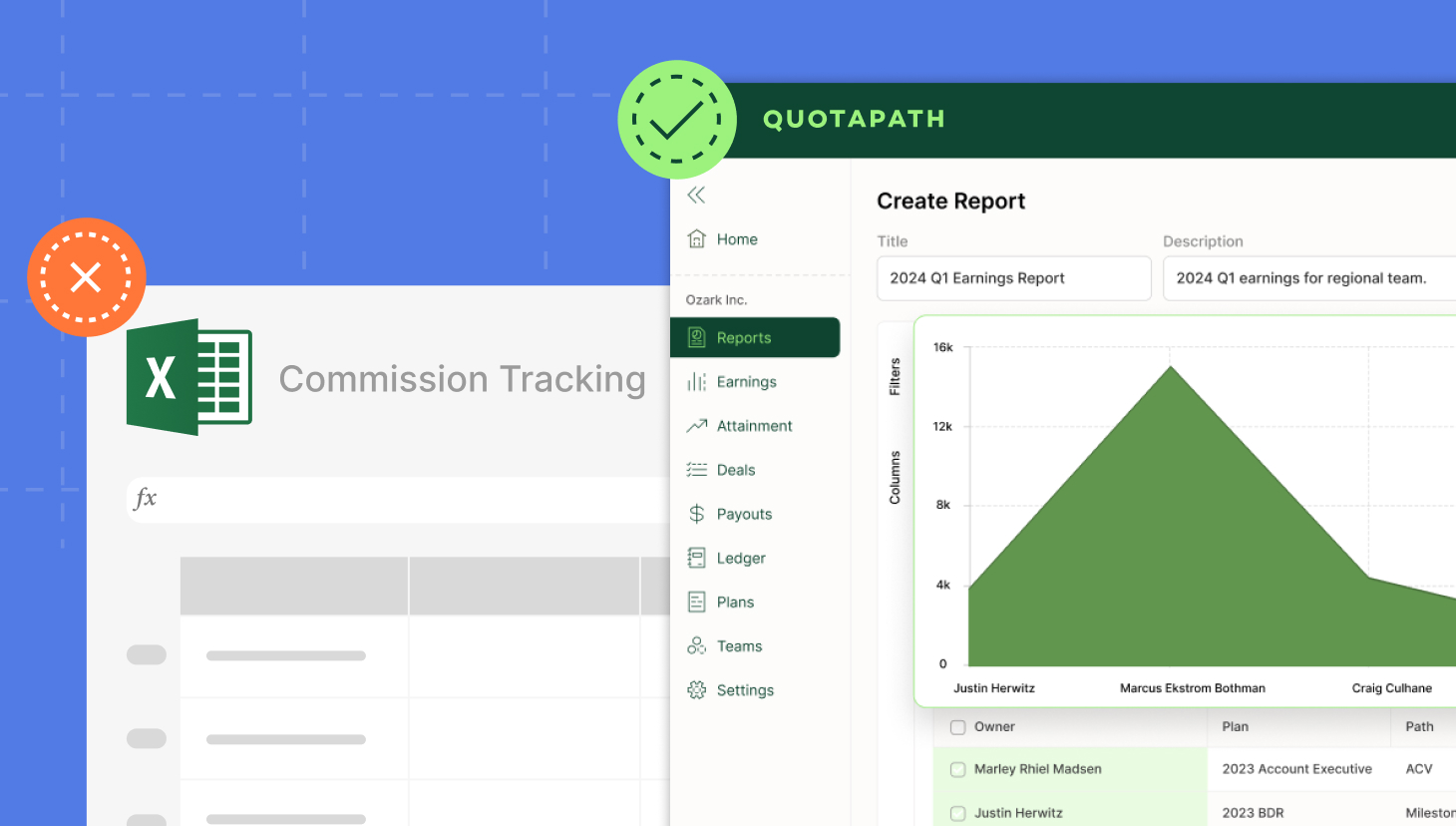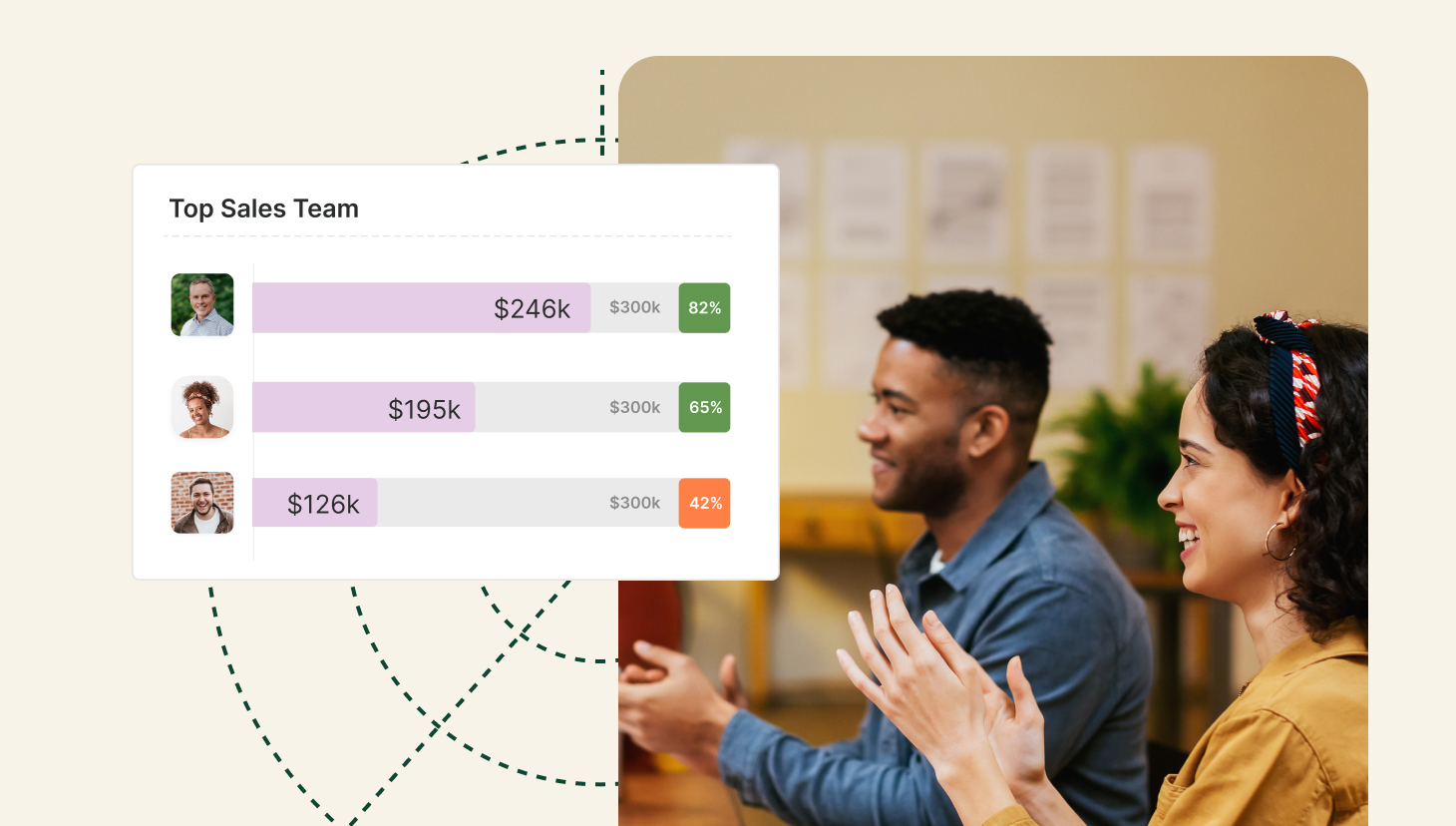Every business wants to generate sales. Putting a tally in the win column feels good. But as a sales manager or other organizational leader, you need to look at the overall picture. One win isn’t enough. It’s how your rep handled that prospect and whether there could have been more tallies in that win column. Enter sales effectiveness.
Whether you’re a company breaking into a new market or a well-established organization, there’s always room for improvement. Understanding and training for sales effectiveness is how you amplify your sales process and turn failures into successes.
Try the most collaborative solution to manage, track and payout variable compensation. Calculate commissions and pay your team accurately, and on time.
Start TrialWhat is sales effectiveness?
The term “sales effectiveness” refers to how well a salesperson or sales team is completing their goals. If you’re being effective, you’re closing deals. In most circumstances, that means looking at everyone’s sales rate. But sometimes, instead of tracking overall sales, you might monitor revenue, profit, or the sales of a specific product.
It’s important to understand the difference between being efficient and being effective. Efficiency is a measure of how much someone can get done in a certain amount of time. You can be efficient and not be effective. For instance, say your team makes all their sales calls in record time but doesn’t book a single meeting or close a single deal. They were certainly efficient, but the lack of sales makes their efforts sadly ineffective.
To improve sales efficiency, try out some of these ideas that aim for long-term boosts in sales performance and profitability.
1. Group training
Group training views effectiveness as a team issue. This takes the focus off individual successes and failures and allows everyone to learn skills from their peers.
Before setting a training date and putting together your agenda, take stock of your team’s current state. Where are they struggling? Is there a common thread? Perhaps you’re seeing a dip in average contract value. Maybe the demo-to-close ratio is less than desirable. Design your sales training to address pain points. Try to keep each meeting focused on one or two issues, so you can dig deep and inspire change.
Additionally, if you have one member on your team who excels in the training subject, they can serve as the instructor. Some salespeople learn better from their peers than leaders. It also allows a member of the team to act as a sales leader without the management requirements.
2. One-on-one training
One-on-one training can be nerve-wracking for the salesperson in the hot seat. But a little anxiety is worth it when you have an opportunity to fine-tune someone’s performance. Prepare for the meeting by identifying each person’s weaknesses, and then create training tailored to each individual. Using info gathered during employee evaluations may help.
One-on-one training and group training become more powerful together. Address common issues in a group setting to save time, and then tweak each salesperson’s technique privately. There, you can continually refine their approach and concentrate on what they need most to get to the next level.
3. Call recording sessions
One of the most significant benefits to recording sales calls is the value those recordings have as a training tool. When you’re on a call and in the moment, you’re going on instinct. You’re focused on making the sale, not picking apart your process. Listen back to those calls once the adrenalin dissipates, and you can be more objective. Assess your messaging, see how you handle objections and learn which keywords trigger certain responses (good and bad). Did you go in with a strategy? Were you a strong resource for your prospect or just reading off product data like a machine?
If you’re a sales leader using calls as a part of your sales coaching, check out these tips to ensure a positive outcome:
- Review taped calls before the coaching session, so you know what’s coming. Take notes, marking the timestamp of examples you want to review with your rep. Also note issues that occur on most or all calls, and highlight those as high-priority items to address while in training.
- Don’t focus solely on bad calls. Provide reps with demo calls that show best practices and some that end well (with a sale). You don’t want to tank morale in your quest for improvement. Plus you can learn just as much from a win as you do from a loss.
- Make the coaching session interactive. Rather than lecturing or immediately taking the lead, ask questions. “What do you think went wrong here?” “Did you know who the decision maker was before you made contact with the customer?” “How could you have done that differently?”
- Prioritize one or two issues each session. If you try to address everything your salesperson did wrong in one 30-minute session, you risk not accomplishing anything. And they’re not going to feel very confident walking out of your office, either.
- Put regular coaching sessions on your schedule. Training works best when it’s ongoing and consistent. That way you can see the results cycle over cycle, month over month.
4. Bring in an outside perspective
Another way to increase sales effectiveness is to look for help outside your organization. Sometimes you get so caught up in your process, you forget there are other ways of selling. As American showman P.T. Barnum once said, “Comfort is the enemy of progress.”
A third-party training expert or consultant can offer a fresh perspective. Shaking up the status quo and seeing your team — and yourself — through new eyes can be a surprisingly invigorating experience. All that insight can power new marketing approaches, inspire training content and help your team provide better service.
5. Examine your tech stack
Technology can be as important as people to your overall sales effectiveness. You need help measuring key metrics, and tools that help track commissions and build and manage comp plans free your team up to do what they do best. These tracking platforms are more efficient with numbers and more accurate, too.
Gauging sales effectiveness and striving for improvement is a major factor in scaling your sales. Getting to the next level requires a lot of introspection and effort. But those willing to make changes will reap the rewards.
To see how tech can help you achieve impressive growth through sales effectiveness, book a demo with QuotaPath today.



